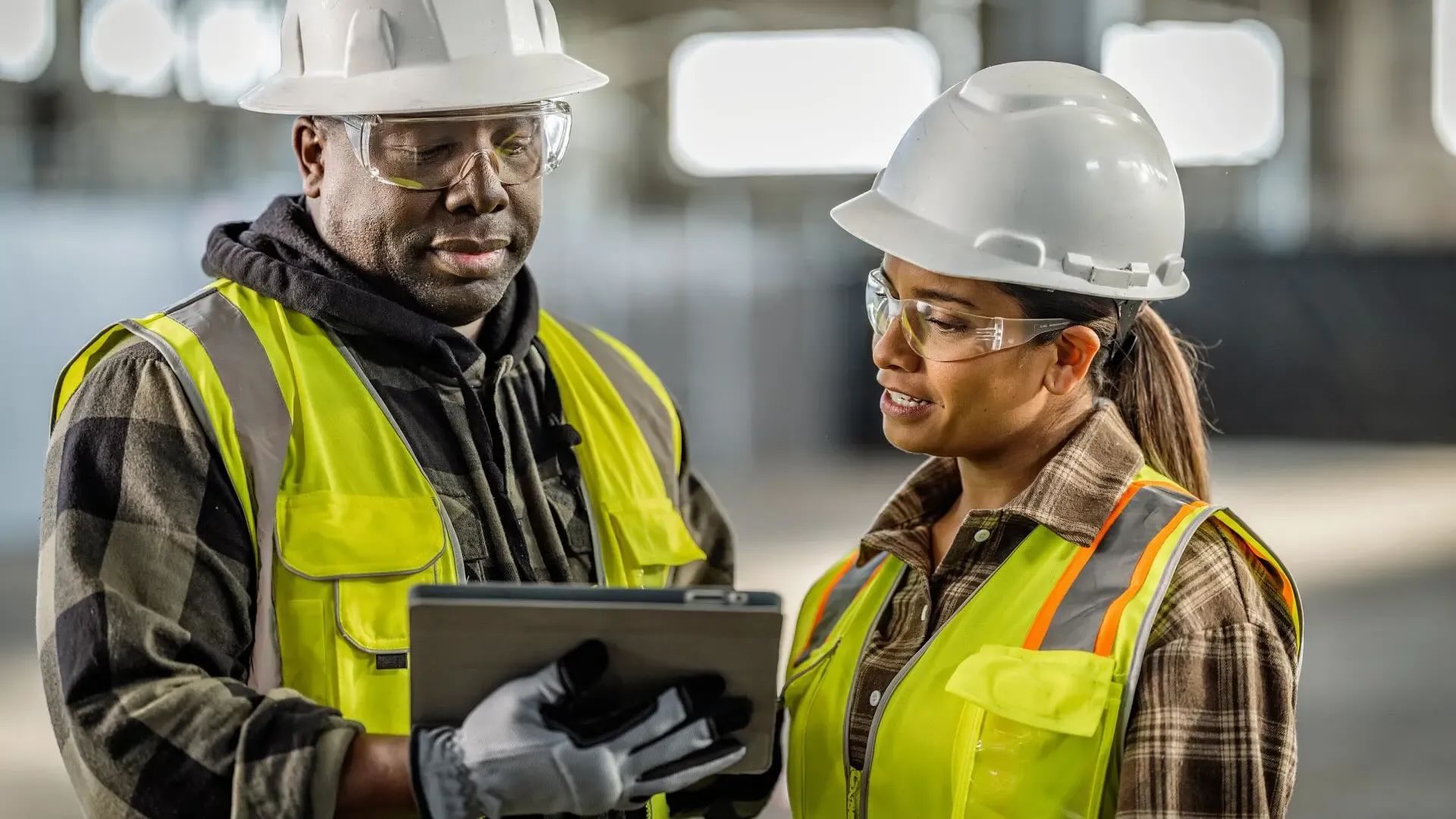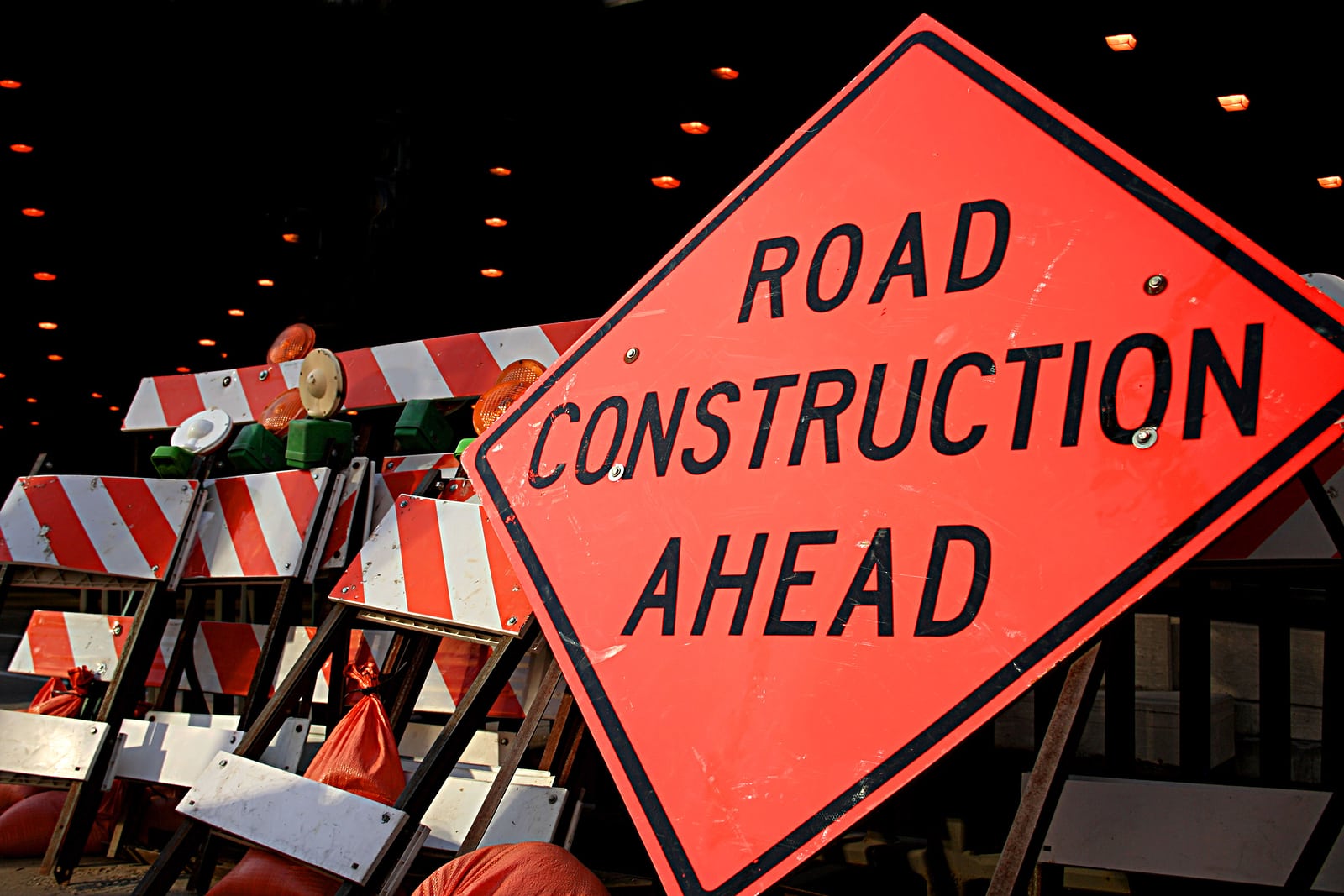Home>diy>Building & Construction>How To Become A Construction Safety Manager


Building & Construction
How To Become A Construction Safety Manager
Modified: October 20, 2024
Learn how to become a construction safety manager and ensure the safety of workers on building construction sites. Gain knowledge in hazard identification, risk assessment, and safety regulations.
(Many of the links in this article redirect to a specific reviewed product. Your purchase of these products through affiliate links helps to generate commission for Storables.com, at no extra cost. Learn more)
Introduction
The construction industry plays a vital role in the development of our cities and infrastructure. However, it is also known for its high-risk nature, with the potential for accidents and injuries. That’s where construction safety managers come in. These professionals combine their knowledge of building construction with their expertise in safety regulations to ensure that construction sites are secure and workers are protected.
A construction safety manager is responsible for implementing safety protocols, conducting inspections, and identifying potential hazards on construction sites. They work closely with construction teams and supervisors to create a safe working environment and ensure compliance with safety regulations. Their primary goal is to prevent accidents and injuries, reduce risks, and promote a culture of safety within the construction industry.
To become a construction safety manager, individuals need to possess a combination of education, training, experience, and skills. They must have a deep understanding of building construction processes, as well as knowledge of local, state, and federal safety regulations. Additionally, they should have excellent communication and problem-solving skills to effectively address safety concerns on construction sites.
In this article, we will explore the responsibilities of a construction safety manager, the requirements to become one, and the steps to kickstart your career in this field. So, whether you are a construction professional looking to specialize in safety management or someone interested in entering the construction industry, this guide will provide you with the necessary information to become a successful construction safety manager.
Key Takeaways:
- Becoming a construction safety manager requires a blend of education, certifications, practical experience, and a commitment to promoting safety culture. Continuous learning and networking are essential for success in this rewarding field.
- Construction safety managers play a critical role in ensuring compliance with safety regulations, conducting inspections, and promoting a safe working environment. The demand for skilled professionals in this field is expected to grow as safety remains a top priority in the construction industry.
Read more: How To Become A BIM Manager
Responsibilities of a Construction Safety Manager
Construction safety managers have a wide range of responsibilities to ensure the safety and well-being of workers on construction sites. These responsibilities can vary depending on the size and complexity of the project, but generally, construction safety managers are responsible for the following:
- Creating and Implementing Safety Programs – Construction safety managers develop and implement comprehensive safety programs tailored to specific construction projects. They identify potential hazards and create safety protocols to mitigate risks. This involves conducting risk assessments, developing safety policies and procedures, and providing training on safety protocols to the construction team.
- Conducting Inspections and Safety Audits – Construction safety managers regularly inspect construction sites to identify potential safety hazards and ensure compliance with safety regulations. They inspect scaffolding, fall protection systems, electrical wiring, and other aspects of construction to ensure that they meet safety standards. They also conduct safety audits to evaluate the effectiveness of safety programs and make necessary improvements.
- Investigating Accidents and Incidents – In the unfortunate event of an accident or incident on a construction site, construction safety managers are responsible for conducting detailed investigations to determine the root cause. They analyze the circumstances leading up to the incident, identify any safety violations, and recommend corrective actions to prevent similar incidents in the future.
- Promoting Safety Awareness – Construction safety managers play a crucial role in promoting a culture of safety among construction workers. They conduct safety training sessions, toolbox talks, and safety awareness campaigns to educate workers about potential hazards and encourage safe work practices. They also communicate regularly with contractors, workers, and supervisors to address any safety concerns and provide guidance on how to improve safety performance.
- Ensuring Compliance with Safety Regulations – Construction sites must adhere to numerous safety regulations and standards imposed by local, state, and federal authorities. Construction safety managers are responsible for staying up-to-date with these regulations and ensuring that the construction project meets all safety requirements. They review construction plans, permits, and documentation to ensure compliance and address any safety violations promptly.
These are just a few of the key responsibilities of a construction safety manager. They play a critical role in creating a safe working environment on construction sites, protecting workers from potential hazards, and minimizing the risk of accidents and injuries. By implementing effective safety programs and enforcing safety regulations, construction safety managers contribute to the overall success and sustainability of construction projects.
Requirements for Becoming a Construction Safety Manager
Becoming a construction safety manager requires a combination of education, training, experience, and skills. While specific requirements may vary depending on the employer and the jurisdiction, there are some common prerequisites to consider. Here are the key requirements for becoming a construction safety manager:
- Education – Most employers require a minimum of a bachelor’s degree in a related field such as construction management, occupational safety and health, or engineering. A degree in these disciplines provides a solid foundation in construction processes, safety regulations, and risk management. Some individuals may also choose to pursue a master’s degree for advanced knowledge and career advancement opportunities.
- Certifications and Licenses – Construction safety managers often need to obtain industry certifications and licenses to demonstrate their expertise and competency. The most widely recognized certification for construction safety professionals is the Certified Safety Professional (CSP) designation offered by the Board of Certified Safety Professionals (BCSP). Other relevant certifications include the Construction Health and Safety Technician (CHST) certification and the Occupational Health and Safety Technician (OHST) certification.
- Experience – While not always mandatory, practical experience in the construction industry is highly valued for construction safety managers. Gaining experience in various roles, such as construction supervisor, project manager, or safety coordinator, provides valuable insights into construction processes and safety considerations. This experience helps in understanding the challenges and complexities of managing safety on construction sites.
- Knowledge of Safety Regulations – Construction safety managers need a comprehensive understanding of safety regulations at local, state, and federal levels. They should be familiar with Occupational Safety and Health Administration (OSHA) standards, construction codes, and industry-specific guidelines. Staying updated with the latest safety regulations and changes in the industry is crucial to ensure compliance and create effective safety programs.
- Technical Skills – Construction safety managers should possess strong technical skills, including proficiency in using safety equipment, understanding blueprints and construction plans, and conducting safety inspections. They should also be familiar with safety software and tools commonly used in the industry. Additionally, strong computer skills and the ability to analyze data and generate reports are essential for monitoring and evaluating safety performance.
- Communication and Leadership Skills – Effective communication is vital for construction safety managers to convey safety protocols and regulations to the construction team. They should have excellent verbal and written communication skills to conduct safety training sessions, write reports, and communicate with stakeholders. Leadership skills are also critical to inspire and motivate workers to prioritize safety on construction sites.
While the specific requirements may vary, meeting these qualifications will significantly enhance your prospects of becoming a construction safety manager. Continuously striving for professional development by attending workshops, seminars, and conferences related to construction safety will further strengthen your knowledge and skills in this rewarding field.
Steps to Become a Construction Safety Manager
If you have a passion for construction and a strong commitment to safety, becoming a construction safety manager can be a rewarding career choice. While the journey may vary for each individual, here are the general steps to help you on your path to becoming a construction safety manager:
- Gain Education and Training – Obtain a bachelor’s degree in a related field such as construction management, occupational safety and health, or engineering. These programs provide a solid grounding in construction processes, safety regulations, and risk management. Consider pursuing advanced degrees or specialized certifications to enhance your knowledge and career prospects.
- Obtain Relevant Certifications – Acquire industry certifications to validate your expertise and enhance your credibility as a construction safety manager. The Certified Safety Professional (CSP) designation offered by the Board of Certified Safety Professionals (BCSP) is widely recognized and respected in the industry. Other relevant certifications include the Construction Health and Safety Technician (CHST) certification and the Occupational Health and Safety Technician (OHST) certification.
- Gain Practical Experience – Seek opportunities to gain practical experience in the construction industry. Work in entry-level roles such as construction supervisor, project manager, or safety coordinator to understand the intricacies of construction processes and gain hands-on experience. This experience will provide valuable insights into safety considerations and challenges on construction sites.
- Develop Safety Skills – Build essential safety skills by actively participating in safety training programs and workshops. Enhance your knowledge of safety regulations, risk assessment techniques, and hazard identification strategies. Acquire expertise in using safety equipment and conducting safety inspections. Effective communication, leadership, and problem-solving skills are also essential to succeed in this field.
- Build a Professional Network – Connect with professionals in the construction industry, including construction safety managers, contractors, and safety associations. Attend industry events, join professional organizations, and engage in networking opportunities to expand your contacts and stay updated with industry trends. Building a strong network can offer valuable insights, mentorship, and potential job opportunities.
- Stay Updated and Seek Professional Development – The construction industry and safety regulations are constantly evolving. Stay updated with the latest safety standards, regulations, and industry best practices. Attend seminars, workshops, and conferences to enhance your knowledge and skills. Continuously seek professional development opportunities to stay at the forefront of the construction safety field.
By following these steps, you can pave the way towards a successful career as a construction safety manager. It requires dedication, continuous learning, practical experience, and a genuine commitment to ensuring the well-being of workers and the overall safety of construction sites. Embracing this role can contribute to building a safer and more sustainable construction industry.
Education and Training
Education and training are vital components in becoming a successful construction safety manager. These aspects provide the necessary knowledge and skills to navigate the complexities of the construction industry and effectively manage safety on construction sites. Here are the key considerations for education and training to become a construction safety manager:
- Bachelor’s Degree – A bachelor’s degree in a related field is typically the minimum requirement for many construction safety manager positions. Consider pursuing a degree in construction management, occupational safety and health, or engineering. These programs offer courses specifically designed to equip students with a solid understanding of construction processes, safety regulations, risk management, and leadership skills.
- Master’s Degree – Although not always mandatory, a master’s degree in a related field can provide an added advantage to aspiring construction safety managers. This advanced degree can offer a deeper understanding of safety practices, research methodologies, and advanced management techniques. It can also open doors to leadership roles and higher-level positions within the construction safety field.
- Certifications – Obtaining relevant certifications is highly recommended to enhance your professional credibility and demonstrate your expertise in construction safety management. The Certified Safety Professional (CSP) designation from the Board of Certified Safety Professionals (BCSP) is widely recognized as the gold standard in the industry. Other relevant certifications include the Construction Health and Safety Technician (CHST) certification and the Occupational Health and Safety Technician (OHST) certification.
- Internships and Practical Training – Practical experience is essential to bridge the gap between theory and practice. Seek internships or practical training opportunities within the construction industry to gain hands-on experience. These experiences allow you to apply classroom knowledge to real-world scenarios, develop problem-solving skills, and understand the practical challenges of implementing safety measures on construction sites.
- Continuing Education – Lifelong learning is crucial in the ever-evolving field of construction safety. Stay updated with the latest industry standards, advancements in safety technology, and changes in regulations. Participate in continuing education programs, workshops, and seminars to enhance your knowledge and skills. This will ensure that you remain relevant and adaptable to emerging safety trends and challenges in the construction industry.
Remember that education and training are ongoing processes throughout your career as a construction safety manager. Stay curious, seek opportunities for professional development, and continuously strive to expand your knowledge base. Embrace a growth mindset and stay up-to-date with industry best practices and emerging safety technologies. By investing in your education and training, you will be well-prepared to manage safety effectively and make a positive impact on the construction industry.
Read more: How To Become A Journeyman Construction
Certifications and Licenses
Certifications and licenses play a crucial role in establishing credibility and demonstrating expertise in the field of construction safety management. They provide a standardized framework for assessing professionals’ knowledge and skills and help employers identify qualified individuals. Here are some key certifications and licenses to consider for a career as a construction safety manager:
- Certified Safety Professional (CSP) – The Certified Safety Professional (CSP) designation is widely recognized as the leading certification for safety professionals, including those working in construction safety. Offered by the Board of Certified Safety Professionals (BCSP), this certification demonstrates a broad range of knowledge in the field of occupational health and safety. To obtain the CSP certification, applicants must meet educational and experience requirements and pass an examination.
- Construction Health and Safety Technician (CHST) – The Construction Health and Safety Technician (CHST) certification focuses specifically on construction safety. Offered by the Board of Certified Safety Professionals (BCSP), it indicates a high level of knowledge and expertise in construction safety management. To earn the CHST certification, candidates must meet specific education and experience requirements and pass an examination.
- Occupational Health and Safety Technician (OHST) – The Occupational Health and Safety Technician (OHST) certification is another valuable certification for those interested in construction safety management. Offered by the Board of Certified Safety Professionals (BCSP), this certification is suitable for individuals responsible for implementing safety programs in various industries, including construction. Candidates must meet specific education and experience requirements and pass an examination to obtain the OHST certification.
- Other Industry-Specific Certifications – Depending on your specialization or the particular industry you are interested in, there may be additional certifications that can enhance your credentials as a construction safety manager. For example, the National Fire Protection Association (NFPA) offers certifications such as Certified Fire Protection Specialist (CFPS), while the American Society of Safety Professionals (ASSP) offers the Safety Management Specialist (SMS) certification. These certifications showcase expertise in specific areas related to construction safety management.
- State and Local Licenses – In addition to professional certifications, construction safety managers may need to obtain state or local licenses depending on the jurisdiction they work in. These licenses ensure compliance with specific regulations and may involve completing training programs, passing examinations, or meeting other requirements. Familiarize yourself with the licensing requirements in your area to ensure you meet all necessary criteria.
Certifications and licenses demonstrate your commitment to professional development and validate your expertise in construction safety management. They not only enhance your professional credibility but also open doors to a wider range of job opportunities. Keep in mind that maintaining certifications often requires continuing education and periodic renewal to stay current with industry standards and best practices.
It’s important to research and identify the specific certifications and licenses that align with your career goals and the requirements of potential employers. By acquiring these credentials, you can differentiate yourself in the competitive field of construction safety management and showcase your dedication to maintaining high safety standards on construction sites.
Tip: Gain experience in the construction industry, obtain a degree in occupational health and safety, and pursue certifications such as the Certified Safety Professional (CSP) to become a construction safety manager.
Building Practical Experience
Building practical experience is essential for aspiring construction safety managers. This hands-on experience allows individuals to gain a deeper understanding of construction processes, safety protocols, and the challenges faced on construction sites. Here are some key steps to building practical experience in the field:
- Entry-Level Construction Roles – Start your journey by gaining experience in entry-level construction positions, such as construction supervisor, project coordinator, or safety assistant. These roles provide a foundation for understanding the inner workings of construction sites and the importance of safety measures.
- Safety Coordination – Look for opportunities to work with safety coordinators or safety managers within construction companies. By assisting them in their roles, you can learn firsthand about the implementation of safety programs, conducting safety inspections, and responding to safety incidents.
- Internships and Apprenticeships – Seek out internships or apprenticeship programs offered by construction companies or safety consulting firms. These programs provide valuable exposure to real-world construction projects, allowing you to learn from experienced professionals and gain practical skills in managing safety on construction sites.
- Shadowing – Whenever possible, shadow experienced construction safety managers to observe their daily activities and get a firsthand understanding of their responsibilities. This can include accompanying them on site inspections, safety audits, or training sessions. By shadowing professionals in the field, you can learn valuable insights and techniques.
- Volunteer Opportunities – Consider volunteering for organizations or community projects related to construction safety. This not only allows you to contribute to important causes but also provides opportunities to gain practical experience in managing safety within a construction context.
- Documentation – Keep a record of your experiences and the projects you have worked on. Document any safety initiatives you have implemented or challenges you have encountered. This documentation can serve as tangible evidence of your practical experience when applying for positions as a construction safety manager.
- Continuous Learning – Actively seek opportunities to expand your knowledge and skills in construction safety management. Take advantage of professional development courses, workshops, and conferences to stay updated with the latest industry standards and best practices. Continuous learning demonstrates your commitment to growth and improvement in the field.
Building practical experience is crucial for honing your skills and gaining insights into the unique challenges and requirements of managing safety on construction sites. It allows you to apply theoretical knowledge to real-world scenarios, develop problem-solving abilities, and enhance your understanding of best practices for creating a safe work environment.
Remember, practical experience should go hand-in-hand with obtaining relevant certifications and continually expanding your knowledge base. By combining practical experience with education and skills development, you can enhance your qualifications and increase your competitiveness as a construction safety manager.
Developing Safety Skills
Developing safety skills is crucial for becoming a successful construction safety manager. These skills play a vital role in identifying and mitigating risks, implementing effective safety protocols, and creating a culture of safety on construction sites. Here are some key areas to focus on when developing safety skills:
- Risk Assessment – Enhance your ability to identify potential hazards and assess risks associated with construction projects. Learn how to conduct thorough risk assessments, analyze data, and prioritize risks based on severity and likelihood. This skill allows you to proactively address safety concerns and propose effective risk mitigation strategies.
- Knowledge of Safety Regulations – Stay updated with local, state, and federal safety regulations that apply to the construction industry. Understand the requirements and standards set forth by organizations such as the Occupational Safety and Health Administration (OSHA). This knowledge ensures that construction sites are in compliance with safety regulations and helps you identify potential safety violations.
- Safety Planning and Implementation – Develop the ability to create comprehensive safety plans for construction projects. This involves understanding the unique aspects of each project and designing safety protocols tailored to the specific needs and risks. Learn how to effectively communicate safety protocols to the construction team and ensure proper implementation and adherence to safety guidelines.
- Safety Training and Education – Gain expertise in providing safety training and education to construction workers. Learn how to develop training programs that effectively communicate safety protocols, hazard identification techniques, and safe work practices. Develop your presentation skills to engage and educate construction workers on the importance of safety.
- Safety Inspections and Audits – Develop the ability to conduct thorough safety inspections and audits on construction sites. Learn how to identify potential hazards, evaluate safety compliance, and provide guidance on risk management. Develop a keen eye for safety violations, and learn to address them promptly and effectively.
- Communication and Leadership – Effective communication and leadership skills are essential in managing safety on construction sites. Enhance your ability to communicate safety policies and procedures clearly to construction teams, supervisors, and stakeholders. Develop your leadership skills to motivate and inspire teams to prioritize safety, foster a culture of safety awareness, and encourage open communication regarding safety concerns.
- Problem-Solving and Decision Making – Construction safety managers often encounter unexpected safety challenges that require quick thinking and decisive action. Develop your problem-solving and decision-making skills to effectively address safety issues on construction sites. Learn how to analyze situations, consider multiple solutions, and make informed decisions to ensure the safety and well-being of workers.
Remember, developing safety skills is an ongoing process. Continuously seek opportunities to enhance your knowledge and skills through training programs, workshops, and industry events. Stay updated with the latest safety technologies and industry best practices to confidently manage safety on construction sites and create a safe working environment.
By developing strong safety skills, you will not only protect the lives and well-being of construction workers but also contribute to the overall success and reputation of construction projects. Your commitment to safety will make a significant difference in ensuring that construction sites are secure and that workers return home safely at the end of each day.
Networking and Professional Development
Networking and professional development are key factors in advancing your career as a construction safety manager. Building a strong network of industry professionals and continuously seeking opportunities for growth and learning can open doors to new job opportunities, provide valuable insights, and enhance your professional credibility. Here are some strategies to consider for networking and professional development:
- Join Professional Organizations – Identify and join professional organizations dedicated to construction safety management. Organizations such as the American Society of Safety Professionals (ASSP) and the National Safety Council (NSC) offer networking events, conferences, and resources to connect with fellow professionals and stay updated with industry trends and best practices.
- Attend Conferences and Events – Attend industry conferences, seminars, and workshops focused on construction safety. These events provide opportunities to learn from industry experts, participate in educational sessions, and network with like-minded professionals. Take part in panel discussions, engage in conversations, and actively seek connections with peers and industry leaders.
- Participate in Online Communities – Engage in online forums, discussion boards, and social media groups related to construction safety. These virtual communities provide platforms to connect with professionals around the globe, exchange knowledge and experiences, and stay informed about the latest industry trends. Actively participate in discussions and share your insights to establish your expertise and expand your network.
- Mentorship – Seek out mentorship opportunities with experienced professionals in the construction safety field. A mentor can provide guidance, share valuable insights, and offer career advice. Engage in open and regular communication with your mentor to learn from their experiences and gain a broader perspective on construction safety management.
- Professional Development Courses – Take advantage of professional development courses, both online and in-person, to develop and enhance your skills. These courses cover a wide range of topics, including safety regulations, risk management, leadership, and communication. Continuous learning not only demonstrates your commitment to professional growth but also equips you with the latest knowledge and tools to excel in your role as a construction safety manager.
- Publish and Present – Share your expertise and professional insights by publishing articles, blog posts, or whitepapers on construction safety topics. Consider presenting at industry conferences or local seminars to showcase your knowledge and establish yourself as a thought leader. These activities not only contribute to the industry but also help expand your professional network.
- Attend Industry Trade Shows – Attend construction industry trade shows and expos to connect with stakeholders and professionals from various sectors. These events provide a platform to explore new safety technologies, learn about emerging trends, and network with industry suppliers, contractors, and safety professionals. Stay informed about upcoming trade shows in your region and make the most of these opportunities.
Remember, networking and professional development are ongoing processes that require active engagement. Take the initiative to reach out to professionals, engage in meaningful conversations, and constantly seek opportunities to expand your knowledge and network. Building strong relationships and staying current with industry developments will not only enhance your career prospects but also allow you to contribute to the advancement of the construction safety field.
By investing time and effort in networking and professional development, you can build a solid foundation for career growth, gain valuable insights, and establish yourself as a respected professional in the construction safety industry.
Read more: How To Become A Construction Estimator
Job Opportunities for Construction Safety Managers
As the importance of safety in the construction industry continues to be recognized, the demand for qualified construction safety managers is on the rise. Construction safety managers play a critical role in ensuring that construction sites are safe, workers are protected, and projects comply with safety regulations. Here are some key job opportunities for construction safety managers:
- Construction Companies – Many construction companies employ dedicated safety managers to oversee and manage safety on their construction sites. These companies recognize the value of having professionals who specialize in safety management to ensure compliance with safety regulations and best practices. Construction safety managers in this setting are responsible for implementing safety programs, conducting inspections, and providing training to construction teams.
- Engineering and Consulting Firms – Engineering and consulting firms often have dedicated divisions or departments that focus on construction safety. These firms offer services and expertise in safety consulting, risk assessment, and safety program development. Construction safety managers in these firms may work with multiple clients and projects, providing professional advice and ensuring compliance with safety regulations.
- Government Agencies – Government agencies at the local, state, and federal levels have a keen interest in promoting safety standards in the construction industry. These agencies often hire construction safety managers to oversee construction projects and ensure compliance with safety regulations and codes. Construction safety managers in government agencies may conduct inspections, review construction plans, and enforce safety standards.
- General Contractors – General contractors play a crucial role in managing construction projects, including safety management. They often appoint construction safety managers to oversee safety protocols and ensure that subcontractors comply with safety regulations. Construction safety managers in this role collaborate closely with project managers, site supervisors, and subcontractors to create and maintain a safe working environment.
- Safety Consulting Firms – Safety consulting firms specialize in providing safety services to various industries, including construction. These firms offer safety management expertise to construction companies, contractors, and developers. Construction safety managers in consulting firms work with a diverse range of clients, providing safety assessments, developing safety protocols, and offering guidance to improve safety performance.
- Educational Institutions – Colleges, universities, and trade schools often employ construction safety managers in their construction management or occupational safety programs. These professionals contribute to developing curriculum, teaching safety courses, and preparing future construction professionals for careers in safety management. Construction safety managers in educational institutions may also conduct research or engage in industry outreach programs.
The opportunities for construction safety managers are not limited to these areas. Other sectors such as insurance companies, non-profit organizations, and large construction projects may also require the expertise of construction safety managers. Additionally, individual contractors on smaller construction projects may hire construction safety managers on a project basis to ensure compliance and safety.
As the construction industry continues to prioritize safety, the demand for construction safety managers is expected to grow. By obtaining the necessary education, certifications, and practical experience, you can position yourself for a rewarding career in construction safety management and make a significant impact on the well-being of construction workers and the success of construction projects.
Conclusion
Becoming a construction safety manager requires a combination of education, experience, skills, and a passion for ensuring the safety of construction sites and workers. This comprehensive guide has provided insights into the responsibilities of a construction safety manager, the requirements to enter this field, and the steps to embark on a successful career in construction safety management.
Construction safety managers play a crucial role in implementing safety protocols, conducting inspections, and promoting a culture of safety within the construction industry. By ensuring compliance with safety regulations and addressing potential hazards, they contribute to the overall well-being of workers and the success of construction projects.
To enter this field, it is essential to acquire the relevant education and training. Obtaining a degree in a related field, such as construction management or occupational safety and health, lays the foundation for understanding construction processes and safety regulations. Pursuing certifications, such as the Certified Safety Professional (CSP) designation, further enhances your qualifications and demonstrates your dedication to the field.
Building practical experience is also vital for a construction safety manager. By working in entry-level construction roles, participating in internships, and gaining hands-on experience, you can develop a deeper understanding of construction site operations and safety challenges.
Continuous professional development and networking are essential for growth in this field. Engaging in ongoing education and attending conferences, seminars, and industry events allow you to stay up-to-date with the latest safety regulations, industry trends, and best practices. Building a strong professional network provides opportunities for mentorship, collaboration, and career advancement.
Job opportunities for construction safety managers are diverse, ranging from construction companies and engineering firms to government agencies and safety consulting firms. The demand for skilled professionals in this field is expected to grow as safety continues to be a priority in the construction industry.
In conclusion, a career as a construction safety manager can be highly rewarding, both personally and professionally. By combining your knowledge of building construction with a passion for safety, you can play a vital role in protecting the lives and well-being of construction workers. Embrace continuous learning, develop your skills, and seize networking opportunities to excel in this important and fulfilling profession.
Frequently Asked Questions about How To Become A Construction Safety Manager
Was this page helpful?
At Storables.com, we guarantee accurate and reliable information. Our content, validated by Expert Board Contributors, is crafted following stringent Editorial Policies. We're committed to providing you with well-researched, expert-backed insights for all your informational needs.














0 thoughts on “How To Become A Construction Safety Manager”